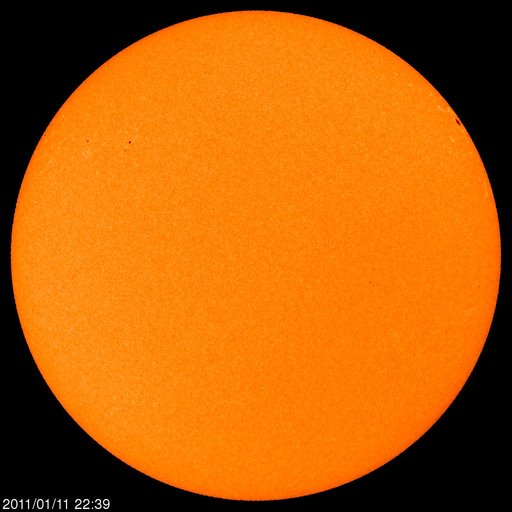Tror på antropogen uppvärmning -- emot Kyoto
I detta klipp från en paneldebatt oktober 2007 (hela debatten på FORA.tv), för professor Mike Hulme, grundare och chef för Tyndall Centre for Climate Change, ett högst intressant resonemang. Fixade transkript nedan.
Hulme nämner först en formulering i samband med att IPCC och Al Gore gavs Nobels fredspris, nämligen "good science and good communication equals peace", där IPCC antas vara den goda vetenskapen och Gore den goda kommunikationen. Sedan nämner han att The Guardian om senaste IPCC-rapporten skrev att den "will end the scientific argument".
Hulme menar att detta visar på en mycket bristfällig förståelse för dels hur världen fungerar och dels vad vetenskapen kan göra för oss. Det är inte så att vetenskapen enas om vad som är vetenskapligt sant där vi sedan kommunicerar detta så att fred uppstår, i det att världen agerar och våra problem löses. Hulme säger att det inte är vetenskapens uppgift och att de flesta politiska problem inte löses så, och i synnerhet inte klimatfrågan. Hulme menar att vetenskapsmän där oenighet finns inte kan säga vad som ska göras.
Hulme menar alltså att människan påverkar klimatet men ser problem i den alarmism bl a medierna matar oss med. Han har även bl a skrivit en op-ed för BBC. Här är en del av den:
----------------------------------------------------------------------------------------
Tillbakalänkning:
Sydsvenskan om Kyoto-förordande alarmist vid Malmös ultravänsterarrangemang; Göteborg-statsvetare i DN om att målet för detultrasocialistiska/kommunistiska mötet European Social Forum i Malmö är världssocialism världsdemokrati.
Andra bloggar om: samhälle, samhällsekonomi, miljö, global warming, växthuseffekten, klimat, klimatet, klimatförändring, klimatalarmism, Mike Hulme, Kyoto
Hulme nämner först en formulering i samband med att IPCC och Al Gore gavs Nobels fredspris, nämligen "good science and good communication equals peace", där IPCC antas vara den goda vetenskapen och Gore den goda kommunikationen. Sedan nämner han att The Guardian om senaste IPCC-rapporten skrev att den "will end the scientific argument".
Hulme menar att detta visar på en mycket bristfällig förståelse för dels hur världen fungerar och dels vad vetenskapen kan göra för oss. Det är inte så att vetenskapen enas om vad som är vetenskapligt sant där vi sedan kommunicerar detta så att fred uppstår, i det att världen agerar och våra problem löses. Hulme säger att det inte är vetenskapens uppgift och att de flesta politiska problem inte löses så, och i synnerhet inte klimatfrågan. Hulme menar att vetenskapsmän där oenighet finns inte kan säga vad som ska göras.
I just want to illustrate that basic thesis of mine with three observations about how science is in danger of, or at least is perceived to be overreaching its legitimate role. One is around the question of what is dangerous climate change. The predominance number, if you ask people both in science and policy, is that two degrees of warming above pre-industrial levels -- we’ve already had .7 or .8 -- two degrees is what constitutes dangerous climate change. This magazine advertising campaign from Christian Aid … it just came out the last few months. Christian Aid urge UK citizens to write MP’s in relation to climate change bill that it should setting a target, an 80% reduction by 2050. But the point here is they say: "Scientists have agreed that the earth must not exceed an average temperature rise of two degrees Celsius. Otherwise catastrophic climate change will be unavoidable."
Have scientists agreed on that? Is that actually the role of scientists to agree what is dangerous and what is not? Zero degrees of global warming is dangerous for hundreds of millions, if not billions of people on this planet that ... climate is dangerous, little or no climate change. To say that two degrees of warming is dangerous is actually rather insulting to the many hundreds of millions or billions of people who find climate risks not manageable at the moment. Two degrees on the other hand is safe. Certainly it is safe for me. [...] My point simply is that science can contributes to debates about what constitutes danger, but it is not, quote: "the scientists to tell the world what is dangerous."
The second example is from the Stern review last year. The headline report on economics and climate change said unmitigated climate change will cause between 5 and 20 percent loss to global wealth, global GDP, used classical economic arguments, plus one or two extras, come up with that figure. I simply suggests that that is an incomplete and rather inadequate way of approaching climate change. The Stern review said nothing about what the value of climate is. All it was trying to do was say, what is the potential economic loss of climate change. What is the values to cultures and societies and individuals around the world since simply of climate? No economist has actually tried to tackle that question. And thirdly, and this again is the way that scientists are entangled, I think wrongly, is that the Kyoto protocol, again, is not a political response to climate change, that you can read from a scientific script. As Steve Reinhard and Gwen [?] pointed out this week in journal Nature, a Kyoto protocol is not the only game in town. In fact, their argument, which I largely agree with, is that the Kyoto protocol is failed, is a bad investment, and we should cut our losses and actually try to recast our political and policy response in a completely different way.
Those are my points that I’m open with Tony. I think that there is a real danger that we have confounded sciences true roll with an inappropriate roll in relation to climate change. We constructed a very rigid monolithic problem -- climate change -- with a very rigid single minded solution -- the Kyoto protocol -- and we actually need to go back several stages, reform the problem and rethink the solution.
Hulme menar alltså att människan påverkar klimatet men ser problem i den alarmism bl a medierna matar oss med. Han har även bl a skrivit en op-ed för BBC. Här är en del av den:
Climate change is a reality, and science confirms that human activities are heavily implicated in this change.
But over the last few years a new environmental phenomenon has been constructed in this country - the phenomenon of "catastrophic" climate change.
It seems that mere "climate change" was not going to be bad enough, and so now it must be "catastrophic" to be worthy of attention.
The increasing use of this pejorative term - and its bedfellow qualifiers "chaotic", "irreversible", "rapid" - has altered the public discourse around climate change.
This discourse is now characterised by phrases such as "climate change is worse than we thought", that we are approaching "irreversible tipping in the Earth's climate", and that we are "at the point of no return".
I have found myself increasingly chastised by climate change campaigners when my public statements and lectures on climate change have not satisfied their thirst for environmental drama and exaggerated rhetoric.
It seems that it is we, the professional climate scientists, who are now the (catastrophe) sceptics. How the wheel turns.
----------------------------------------------------------------------------------------
Tillbakalänkning:
Sydsvenskan om Kyoto-förordande alarmist vid Malmös ultravänsterarrangemang; Göteborg-statsvetare i DN om att målet för det
Andra bloggar om: samhälle, samhällsekonomi, miljö, global warming, växthuseffekten, klimat, klimatet, klimatförändring, klimatalarmism, Mike Hulme, Kyoto
Etiketter: miljö


 This site in English a la Google
This site in English a la Google











0 Comments:
Skicka en kommentar
<< Home